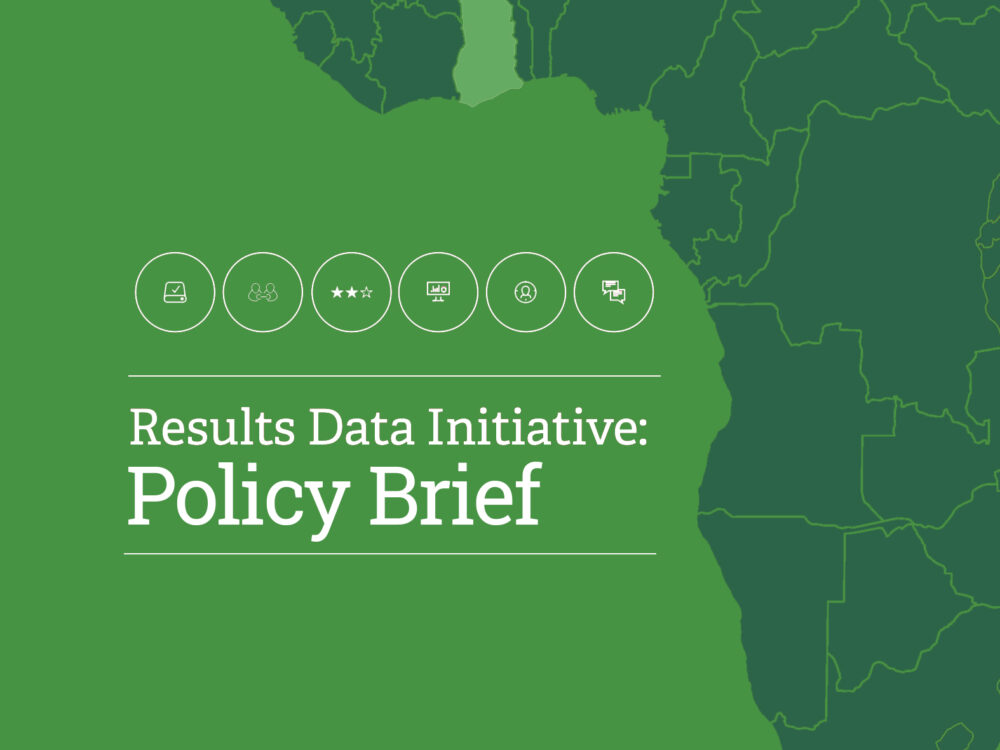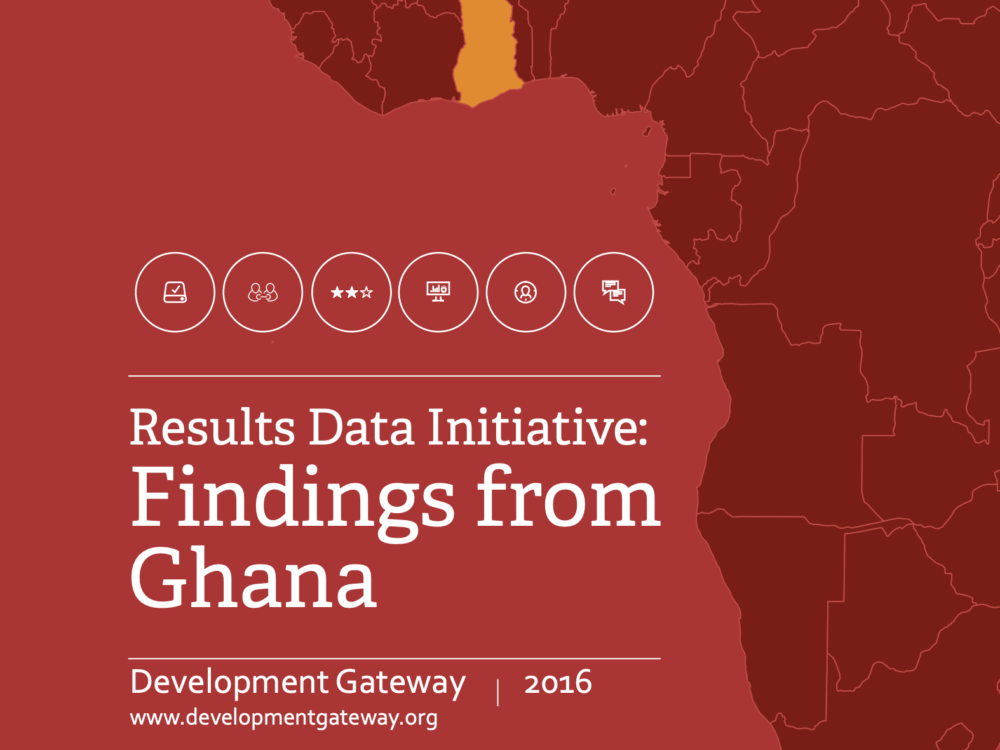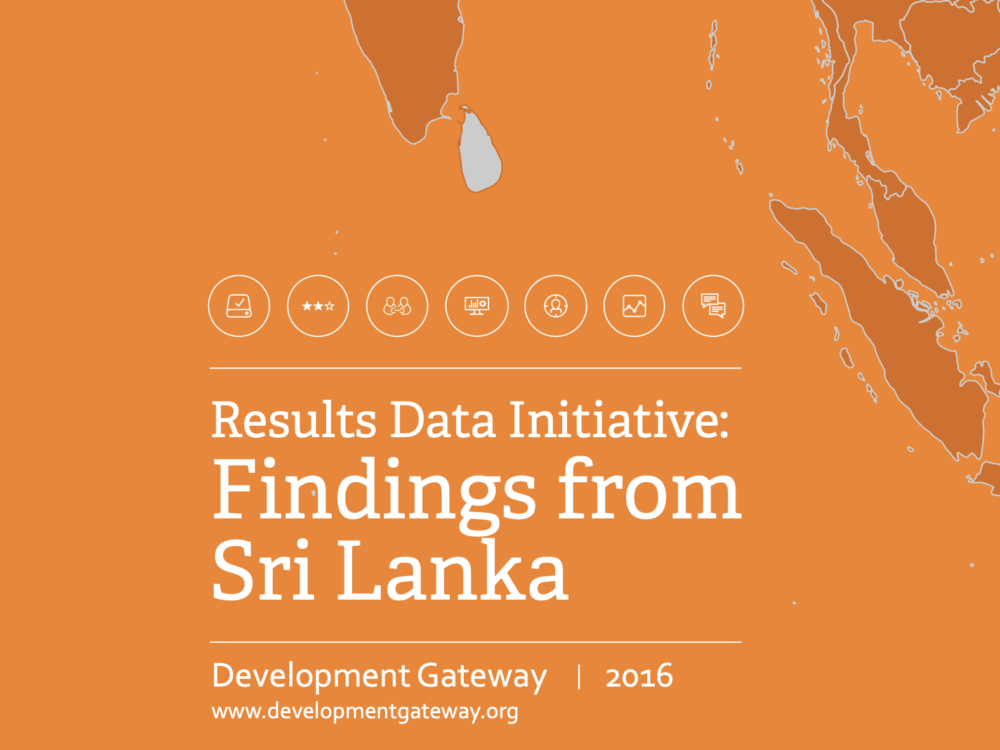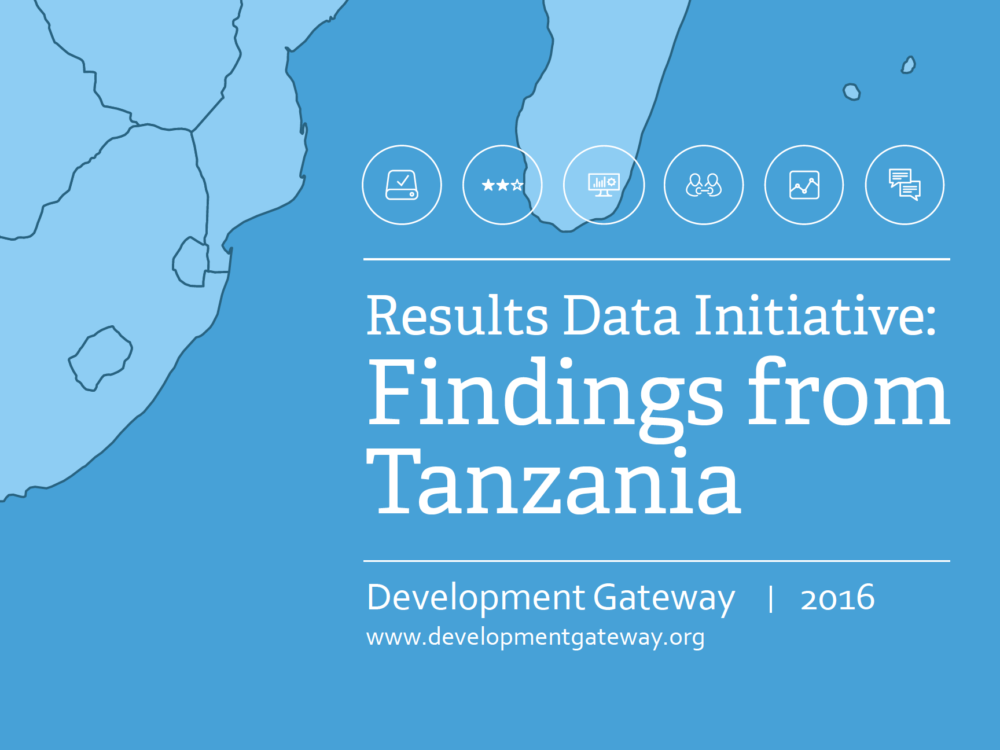The Results Data Initiative (RDI)
Through RDI, Development Gateway worked to better understand how local-level development actors actually collect, share, and use results data to inform development programs. After speaking with over 450 government officials, donor representatives, and project implementing staff in four countries (Ghana, Malawi, Sri Lanka, Tanzania) we were able to put what we learned into action.
Background
Launched in 2015 in partnership with the Bill & Melinda Gates Foundation, this five year, two-phase program worked with four country governments and two development agencies – Ghana, Malawi, Sri Lanka, Tanzania, Global Affairs Canada and UK’s DFID – to address critical barriers to results data use. In phase 1, we focused on research and exploration, and in phase 2 we focused on applying our lessons learned. While the first goal of RDI was to elevate the results focus of a few governments and agencies, our broader program goal was to provide real examples for how the “Data Revolution” can improve development policy and practice. DG created a combination of tools, datasets, resources, and approaches to help dynamic officials in each partner institution enable data-driven decisions.
What We Learned
- Sponsor technologies that promote data use – not just data reporting.
From our interviews, we heard that nearly all the data related technologies being used at the subnational level were for data reporting. Developing systems that reflects the user needs of both government and community stakeholders is crucial. - Generate local-level outcome data.
Frontline workers reported that they are rarely asked to collect outcome level data, as highlighted by this quote from an Agriculture Extension Officer “If someone modifies livestock farming, builds a good house, and takes children to school after selling crops, [increases] from one meal to three meals… These are among changes that you can notice on the farmer though we rarely reach that level. [However,] the nature of data we access most of the time does not track to outcome level…” - Respond to local data demands.
To increase data use, we have to systematically identify local demand and design tools fit-for-purpose – that is collect information with specific decisions and problems in mind.
These learnings were an important stepping stone for how DG understands barriers to data use, and has fed into our approach to other programs as well.
Share Case Study
More From RDI

Results Data Initiative: Policy Brief
This brief outlines perspectives on the present state of development results data from nearly 500 interviews with local practitioners in three countries: Ghana, Sri Lanka, and Tanzania.

Results Data Initiative Findings: Ghana
This report synthesizes the Results Data Initiative findings from Ghana

Results Data Initiatives Findings: Sri Lanka
This report synthesizes the Results Data Initiative findings from Sri Lanka.

Results Data Initiative Findings: Tanzania
This report synthesizes the Results Data Initiative findings from Tanzania